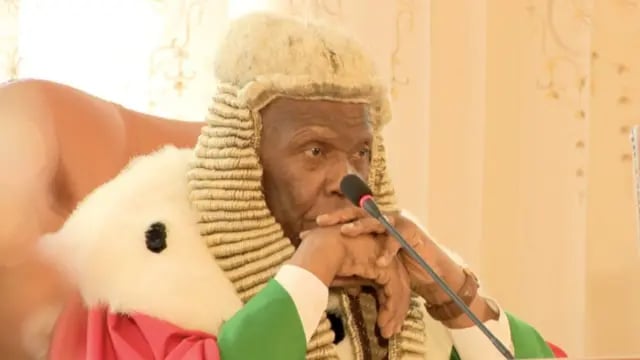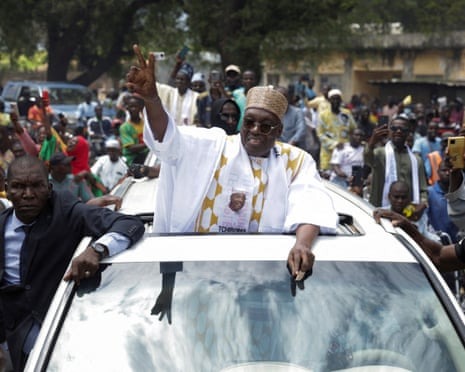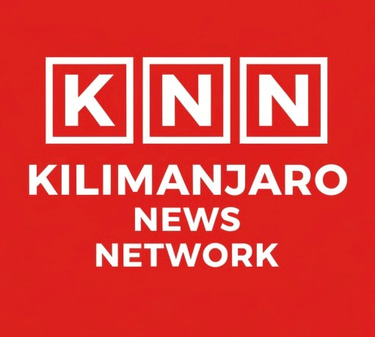Cameroon at the Brink: The People's Verdict Echoes Louder Than the Regime's Echo Chamber
An uneasy calm hangs over Cameroon thick, electric, almost sacred in its tension. The streets are quieter than they should be, but it’s the kind of quiet that hums with expectation, not peace. From Yaoundé to Douala, Bafoussam to Bamenda, everyone knows what’s at stake. The nation is holding its breath, waiting for the Constitutional Council to speak and knowing, deep down, that whatever it says could either heal or break the country. After forty-three years of Paul Biya’s rule, power itself feels brittle, like something that could shatter with a single word. In less than a week, a regime that once seemed immortal could become a relic. Every café conversation, every hushed voice in a taxi, every glow of a phone screen carries the same pulse: this could be it. And yet, beneath the fear and uncertainty, there’s a rare kind of focus a collective vigilance that feels new, almost defiant. Cameroonians are watching this moment with unblinking eyes, refusing distraction, refusing despair. Because they know that history does not wait for permission it bends when a people decide it must.
OPINION
Theodore Nkwenti
10/19/20253 min read


In the sweltering heat of October 12, 2025, Cameroonians marched to the polls not as subjects, but as sovereigns reclaiming a nation long held hostage by inertia and malfeasance. Abraham Lincoln once warned that "you can fool some of the people all of the time, and all of the people some of the time, but you can't fool all of the people all of the time." For 43 years, Paul Biya, now 92 and eyeing an eighth term, has tested that axiom to its breaking point. But as smartphone videos flood social media—citizen-transcripts of tally sheets showing opposition candidate Issa Tchiroma Bakary surging ahead—the dam is indeed breaking. Preliminary counts from urban strongholds like Douala's Wouri Division paint a staggering picture: Tchiroma at 74%, Biya scraping by with 12%. If these hold, it's not just a plot twist; it's an extinction event for a regime and his ruling CPDM party running on the fumes of 2018's rigged farce.
This isn't hyperbole born of opposition fever dreams. Tchiroma, the 76-year-old former Biya ally turned renegade—once imprisoned for a 1984 coup plot, later a government mouthpiece—resigned in June to lead the Front for the National Salvation of Cameroon (FSNC) and the Union for Change coalition. His unilateral victory declaration on October 14, backed by regional breakdowns and endorsements from figures like human rights lawyer Alice Nkom, who flatly stated, "Issa Tchiroma won the elections," signals a full-throated repudiation. Even in Bafoussam, a CPDM bastion, Tchiroma allegedly crushed Biya 53,826 votes to 8,268. Across Yaoundé, Garoua, and Maroua, the margins reportedly hit ten-to-one. The Democratic Liberation Party has congratulated him on a "crushing" win, while warning of fraud in the Anglophone regions, where nine years of conflict have already scarred the land. Cameroonians, it seems, are finally finding their pair—the jungle drums of mutiny booming ever louder around the Unity Palace's bizarre burlesque theater.
Yet, denial ain't just a river in Egypt; it's the CPDM's lifeblood. State broadcaster CRTV and Biya's water-boys in the media churned out propaganda breathlessly pre-election, touting a 70% Biya landslide. Now, in full-blown SOS mode, they dismiss Tchiroma's claims as a "grotesque hoax." Territorial Administration Minister Paul Atanga Nji accuses him of "diabolical plots" with "occult networks." The Constitutional Council—a smoke-filled room of Biya toadies—has until October 26 to "validate" results, but their imprimatur on fraud would only confirm what the streets already know: the CPDM is a cult of partisanship that annihilates thought. They've misunderstood their economic privilege as virtue, Cameroonians' desire for peace as weakness. Their track record? A long, unbroken chain of incompetence: an incestuous pit of corruption, a witch's brew of unimpeded power fueling the Anglophone crisis, economic stagnation, and human depravity that leaves one to wrap their mind around callous realities like vacant stares and stiff gaits from a leader who can't string two sentences together.
The opening salvo came swiftly in Dschang, West Region, where fury over massive fraud torched the CPDM headquarters and courthouse—a harbinger of things to come if the twin tactics of fear and intimidation prevail. In Douala, police clashed with protesters as Gen Z youth, long simmering under the weight of unemployment and repression, descended on electoral officials caught mid-manipulation. Videos capture the raw defiance: crowds pummeling vote-riggers, burning effigies of a regime that's treated the ballot box as a personal fiefdom. Biya's lust for power—the original sin—has squandered a rickety coalition of voters, even alienating his own daughter, Brenda, who publicly urged his ouster last month. No amount of self-delusion can drown out the nagging voice of conscience from a people who've endured statues and robot stand-ins at rallies because the man himself is too frail to appear.
This debacle ensnaring Biya could sink him and the CPDM party completely, but only if the world listens. The African Union, France—Cameroon's colonial puppeteer—and the West must reject any coronation of fraud. Cameroon stands at the brink not of chaos, but of catharsis: a chance to prove that inertia, malfeasance, and incompetence are indeed on the ballot, and the people have voted the troglodytes out en masse. To those ensconced in their corners of privilege acquired from the largesse of Biya cronyism, heed this: the prevailing winds are blowing your way too. Surely, there will be accountability, a sweeping change is definitely coming, there might even be the amorphous, African styled justice called “conférence nationale”. Biya faces two tests of stewardship—his and the CPDM's imprimatur cannot again be bestowed. Step down, Mr. President. The wellsprings of evil run dry; it's time for Cameroon to drink from the river of renewal. The people have spoken. Will you finally listen?





